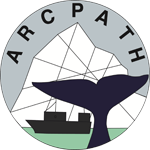Leader: Níels Einarsson; Co-Leader: Astrid Ogilvie.
Participants: SAI; UoI; IC: INSTAAR, RRU, NSIDC, UiT.
WP5 forms a corollary to WP4, and will focus on the same research locations, but will consider broad impacts of both rapid climate and socioeconomic changes on northern communities, and will have a specific emphasis on fisheries governance issues. Although higher sea temperatures lead to increased biological productivity and higher biomass, certain fish stocks, such as capelin, have started to behave unpredictably and, together with herring, may be straying away from traditional fishing grounds. Climate change is also currently affecting fish stocks in a dramatic way with new commercially-valuable fish species becoming more prominent, in particular mackerel. In Iceland, some local municipalities welcome plans for the developing of harbour facilities for trans-Arctic ocean shipping. Such opportunities may benefit communities and regions, for example by creating work opportunities, but also pose challenges and risks for vulnerable coastal marine ecosystems and rural fishing communities, not least due to the risk of oil spills. The potential risks associated with industrial impacts on social and ecological systems is often not translated into policy, not least security policy, where environmental impacts continue to struggle to compete for attention despite the demonstrated increasing risks. The “risk” vs “security” nexus plays a very important role in interdisciplinary projects such as this where raw data from the natural sciences must be understood in relation to social and political systems and “translated” into policy recommendations. Thus, industrial activities of this magnitude call for an interdisciplinary feasibility and risk and policy assessment, including impacts on ecosystems, social and economic livelihoods. An important goal of the ARCPATH project is thus to address research gaps and consider the implications, risks, and challenges of increases in shipping and other marine-based industrial economic activity in North Atlantic Arctic waters.
